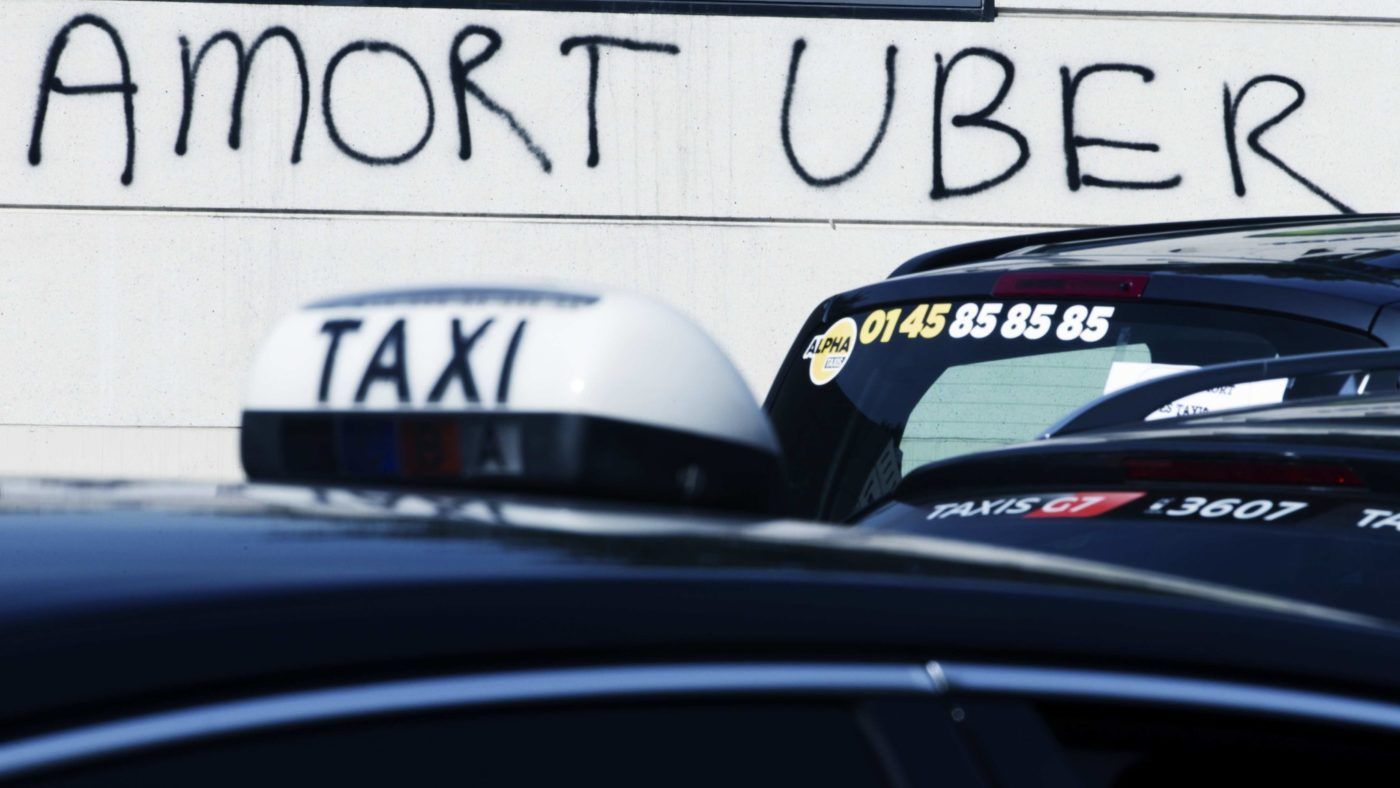The expected and unwelcome fightback has begun. It was only a matter of time before the sharing economy would be dealt a hammer blow by the courts and last week the European Court of Justice did its best to stop people using or working for services such as Uber or Airbnb.
The opinion from the Advocate General of the ECJ follows a case that has been brought by Spanish taxi drivers against the ride sharing service Uber. In Spain, a home-grown app used by heavily regulated Spanish taxi drivers is under threat from Uber’s more competitive business model. The ECJ opinion states that Uber should be regulated like a traditional transportation company, not as an “information society service”.
The court has yet to give its final ruling but usually follows the opinion of its Advocate General, whose verdict last week was hardly a surprise. Given that sharing economy platforms offer consumers a better service and cheaper prices, the existing market players were always going to seek to destroy the competition using legal means rather than by offering a better service. And the laws the ECJ were interpreting predate the digital economy and were never designed for the digital world or the flexibility it affords.
The opinion subject’s services such as Uber to new regulations, including a possible requirement to apply for specific licences and a restriction on numbers to keep prices high, as is the case with taxis in several European cities.
Some have suggested that the opinion only allows national and local governments to treat Uber as they see fit. That is not the case. Firstly they must treat Uber as a transport service meaning that any rules applying to taxis must also apply to Uber. As one of the key revenue raising tools for cities is to restrict the number of licences they offer, cities, if they choose to, can now systematically squeeze Uber out or destroy the company’s price competitiveness.
If the opinion is upheld it will have huge implications for innovative, consumer-driven digital services all across Europe. Many countries and cities have been looking for an excuse to crush the sharing economy and now they have the legal means to do so.
The knock on effects for all digital platforms are also likely to be problematic. The precedent set here could mean that anyone renting out their home on Airbnb would need to meet the same requirements as hotels. The same can be said for other industries, effectively destroying the business models of many sharing-economy platforms. The result will be higher prices and a restriction of consumer choice.
Uber has flourished on the back of a shortage of supply in many towns and cities, and subsequent higher prices. The same is true with Airbnb. Attempts by vested monopolised interests (including governments and city authorities) to end Uber’s growth should be treated with scepticism.
Sharing economy services have rolled back the unnecessary frontiers of an over-mighty state. At local and national level, their exponential growth is clear evidence that they meet what people want from services. Both as consumers and as workers, people in Europe are voting with their feet.
Let me be clear, this is not about being pro- or anti-taxi drivers. I have huge sympathy for the situation they find themselves in. London cabbies, for example, have invested years of time and money in doing the Knowledge and now find demand for their service on the slide. The key is finding a way to help taxi drivers become more competitive with Uber.
Unfortunately last week’s opinion fits into a wider trend in the EU at the moment. The Commission’s much vaunted digital single market proposals appear designed to defend the interests of entrenched industries against the perceived (inside the Berlaymont) negative disruption of the digital revolution.
The EU talks of prioritising the digital single market because of the benefits for growth and for consumers, but unfortunately it appears to be just paying lip service to those ideals. How exactly is the Digital Single Market delivering for consumers when services they like and want to use are banned?
The final ECJ verdict will be produced in the coming months and will determine if Uber should be classified as a transport company or as a passive internet intermediary, or possibly a combination of the two.
The time has come to update our legal framework for 21st-century services and explicitly differentiate between clearly divergent models such as Uber and traditional taxi services. That needs strong political will from national governments to put pressure on the Commission to alter its approach, and to lead by example in their own jurisdictions. It requires politicians to show political courage as well, standing up to highly organised vested interests and work for the greater benefit of those who have elected them. Recent examples in London and other major cities show how difficult this actually is.
No country has ever flourished by clinging to dying industries and refusing to adopt new business models that other parts of the world are embracing with alacrity. Refusing to re-evaluate the red tape governing taxi services and clamping down on Uber will not help drivers or consumers in the long run.
Sadly, that positive approach is not found in many European capitals, but even as we prepare to exit the European Union we will remain under ECJ jurisdiction until the day we leave so we have an immediate short-term interest in working to counter the prevailing anti-digital mood.
The digital world recognises no boundaries, and if the EU regulates digital business models out of existence many will simply move elsewhere where they can. And where they can’t, European consumers will face less choice, less competition, higher prices and a lower standard of living than the rest of the world.
Politicians can prevent that bleak future by seizing the chance for change to our legal framework, such golden opportunities do not come along more than once in a generation.


